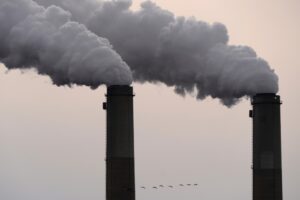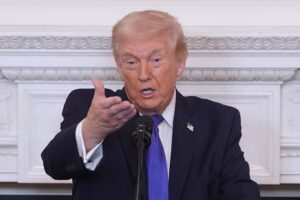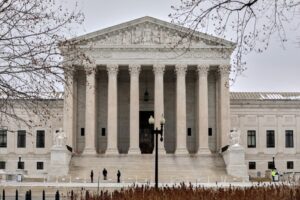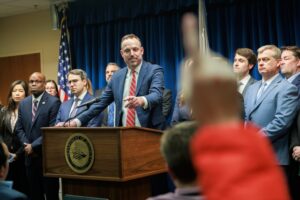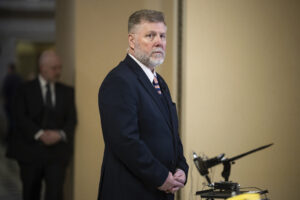Politics
Why Elon Musk’s Jack Smith retribution threat is so worrying
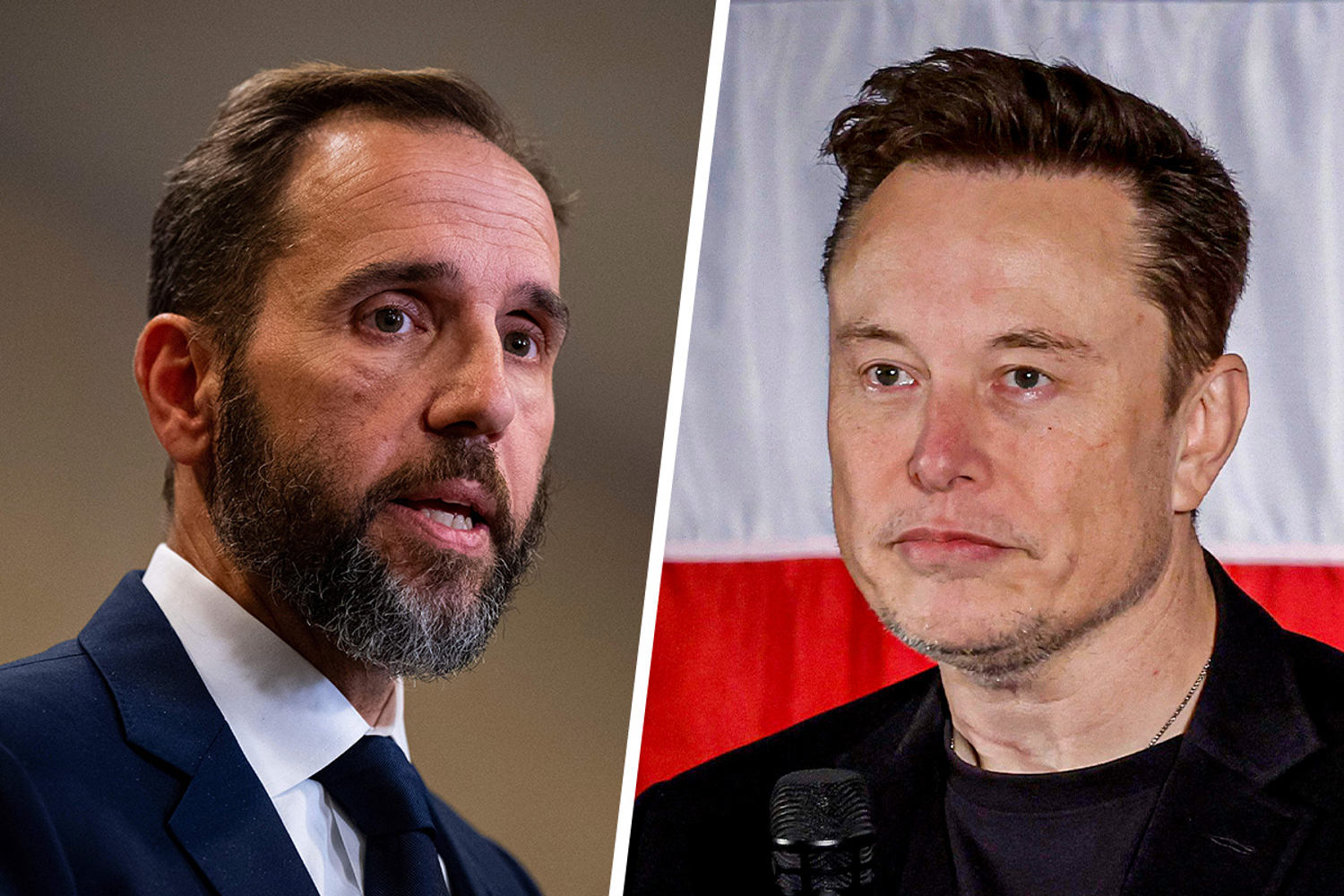
Elon Musk on Friday called for the punishment of special counsel Jack Smith in reply to a post on X from Reps. Jim Jordan and Barry Loudermilk calling on Smith to “preserve all records.” The exchange signals that while Smith may be winding down his cases against the president-elect, the Republicans are just starting to wind up their efforts to seek retribution.
That the special counsel is preparing to mothball his two prosecutions of now-President-elect Donald Trump is evident from reporting on Smith’s conversations with Justice Department leadership, as well as Smith’s motion this week asking the trial judge overseeing the Jan. 6 case to pause the court’s deadlines. That motion was almost immediately granted by Judge Tanya Chutkan. In the filing, Smith characterized the circumstances of the case as “unprecedented” and said he intends to file a report with the court by Dec. 2 laying out how he plans to proceed.
The problem for Smith is a DOJ policy that prohibits the prosecution of a sitting president.
The problem for Smith is a DOJ policy that prohibits the prosecution of a sitting president. That policy is a result of lawyers for presidents Richard Nixon and Bill Clinton successfully arguing to the Justice Department that prosecuting the sitting head of the executive branch would violate the Constitution. While other countries can and do prosecute their sitting heads of government and while scholars have questioned the binding power of a DOJ memo authored by its Office of Legal Counsel, there is a less-than-zero chance that Attorney General Merrick Garland revisits that analysis, given his fear of appearing partisan.
This leaves Smith — and the DOJ — with basically two choices: They can dismiss the cases, or they can pause the cases until Trump is no longer president (again). Pausing the cases would be an exercise in futility since Trump will dismiss the cases as soon as he takes office. This would include giving up the pending appeal of Judge Aileen Cannon’s dismissal of the classified documents case — a dismissal based on Cannon’s outlier conclusion that the very appointment of the special counsel was unconstitutional. Dropping an appeal of a poorly reasoned decision that undercuts the use of a special counsel normally would not be palatable to the Justice Department. But this is not a normal time, and a Trump-appointed attorney general will not only drop the appeal but will also likely seek to do away with the use of special counsels altogether.
Another issue for Smith and the department is whether to try and rush out his report before Smith is fired. And the release of any such report raises the possibility of a conflict between Smith and the ever-cautious Garland. Under the regulations governing the conduct and accountability of special counsels, such a conflict could require Garland to report the disagreement to Congress.
Questioning the authority of the special counsel is exactly what Trump and his allies have done since the Mueller investigation. The most recent example, reported by The Washington Post, is the incoming Trump administration’s plan to have the “next Justice Department … look ‘critically’ at what Smith’s team did over the past couple of years to ‘make sure nothing like this ever happens again.’” The Trump-led Republican Party has made a cottage industry out of “investigating the investigators,” with congressional investigations into the investigation of Hillary Clinton, Robert Mueller’s Russian interference probe, the Georgia election interference case brought by Fani Willis, the New York fraud case and the Hunter Biden prosecution, as well as, most famously, special counsel John Durham’s own investigation.
Durham embodies the pinnacle of the Republican fetish for investigating investigations. He spent four years, much time in private dinners with former Attorney General William Barr and millions of taxpayer dollars to uncover exactly nothing, while also managing to lose two jury trials. But Durham could soon be unseated as reigning champ of the “investigate the investigations” game.
Investigations carried out by Congress, however, can be a double-edged sword for Republicans.
The joint letter from Jordan’s House Committee on the Judiciary and Loudermilk’s Subcommittee on Oversight demanding Smith’s team preserve all their documents signals the gleeful ramping-up of their investigation into the prosecutions. The request itself is modeled after what is called a “preservation notice” in litigation, which puts the recipient on notice not to destroy any potentially relevant or discoverable documents. Such requests are highly intrusive and usually overbroad — but directing such a notice to Smith is a meaningless, showboat action. Smith’s team already needs to preserve its documents in the normal course of recordkeeping — not to mention the historical value of these particular records. Prosecutors are not in the habit of shredding their files upon the conclusion of a case.
The Jordan-Loudermilk inquiries would normally be frustrated, however, by the DOJ’s standard refusal to provide information or testimony about a pending criminal investigation or case. But if Smith dismisses the cases, then that argument is weakened. Moreover, a Trump-appointed attorney general is likely to order full disclosure of any and all information sought, without regard to protecting witnesses or sensitive information. Similarly, if called to testify, Smith and his team will not have the shield of a pending case with which to deflect inquiries.
Investigations carried out by Congress, however, can be a double-edged sword for Republicans. A probe in this case will involve testimony about and the disclosure of that evidence Jordan and Loudermilk want preserved. Such a proceeding may not be what Trump wants, given that it puts a renewed focus on acts that resulted in dozens of criminal charges against him, both federal and state. NBC News reporter Ken Dilanian raised the specter of a more Nixonian approach when he asked whether Trump might not just order all of the prosecution’s accumulated evidence at the DOJ be destroyed. This more commonsense approach to erasing the history of the federal cases against Trump would now run afoul of the congressional notice of preservation.
Nor are congressional inquiries the only weapon available to Republicans. An attorney general fully committed to doing Trump’s bidding could direct the DOJ to begin actual criminal investigations.
Mike Davis, a former clerk to Supreme Court Justice Neil Gorsuch who is now rumored to be a potential nominee for attorney general, illustrated this in a sexist rant directed at New York Attorney General Letitia James: “Let me just say this to Big Tish James. … I dare you to try to continue your lawfare against President Trump in his second term. Because listen here, sweetheart, we’re not messing around this time,” Davis said on a podcast. “And we will put your fat ass in prison for conspiracy against rights, I promise you that.”
This is the same Mike Davis who previously spoke of his wish to harm Trump’s political enemies: “I want to drag their dead political bodies through the streets, burn them, and throw them off the wall. (Legally, politically, and, financially, of course.)” It’s unclear what criminal charge Davis has in mind when he speaks about “conspiracy against rights,” but in other threats against Liz Cheney and Cassidy Hutchinson, Davis specified obstructing a congressional investigation and lying to Congress as charges he believes should be pursued.
Not only is there zero evidence upon which to open such investigations against James or Smith, much less on which to charge or convict, the motivation Davis expressed also violates the DOJ Manual. For example, Section 9-27.260 pertaining to “Initiating and Declining Charges—Impermissible Considerations” bars the use of “political associations, activities or beliefs” as a factor in the decision to bring charges. Section 9-85.500 of the manual also requires that “federal prosecutors and agents may never select the timing of any action, including investigative steps, criminal charges, or statements, for the purpose of affecting any election, or for the purpose of giving an advantage or disadvantage to any candidate or political party.”
However, such rules are of little value in the face of an attorney general who’s determined to ignore and violate them.
Smith and his team started late through no fault of their own. By the time Smith was appointed, it was always clear that getting the Jan. 6 case to trial before the election was a tall order. Against the odds, in the face of a conservative Supreme Court majority that seemed inclined to allow the clock to run out, Smith’s team made speedy progress with the aid of Chutkan’s no-nonsense management of the case.
But “almost” in criminal prosecutions counts for nothing. History will judge Smith’s efforts only by what in his report sees the light of day. And if an incoming Trump DOJ opens punitive criminal investigations, then Smith and many others will suffer the consequences of Garland’s belief that justice must be blind to political realities — regardless of how much those political realities stand in the way of justice.
Shan Wu is a legal analyst and former federal prosecutor who served as counsel to then-Attorney General Janet Reno.
Politics
White House wants a reprieve in spy-powers fight that is splitting the GOP
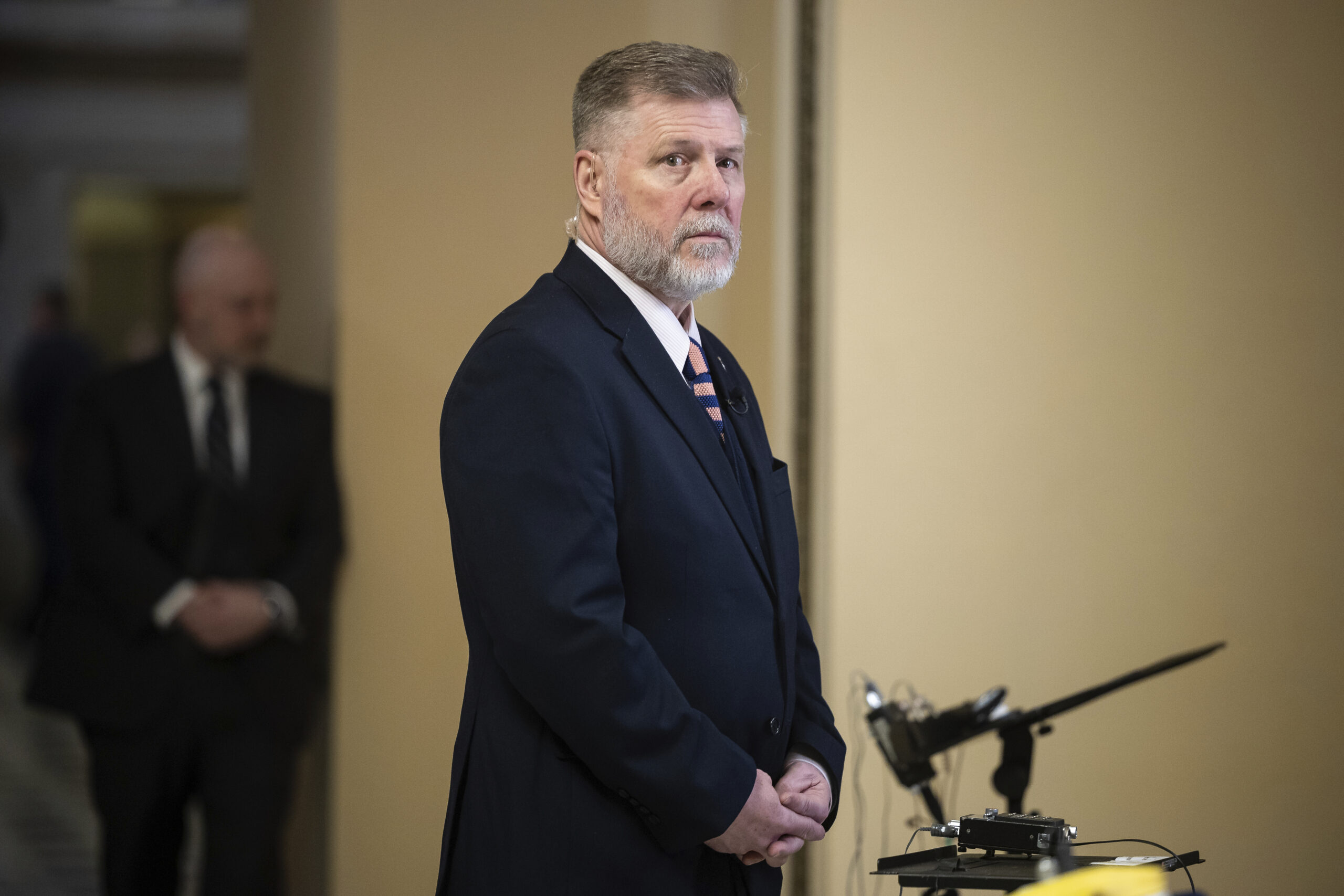
The Trump administration is pushing for a clean extension of Section 702 surveillance authority ahead of an April deadline…
Read More
Politics
White House wants a reprieve in spy-powers fight that is splitting the GOP
The Trump administration is pushing for a clean extension of Section 702 surveillance authority ahead of an April deadline…
Read More
-

 The Dictatorship1 year ago
The Dictatorship1 year agoLuigi Mangione acknowledges public support in first official statement since arrest
-

 Politics1 year ago
Politics1 year agoFormer ‘Squad’ members launching ‘Bowman and Bush’ YouTube show
-

 The Dictatorship5 months ago
The Dictatorship5 months agoMike Johnson sums up the GOP’s arrogant position on military occupation with two words
-

 Politics1 year ago
Politics1 year agoBlue Light News’s Editorial Director Ryan Hutchins speaks at Blue Light News’s 2025 Governors Summit
-

 Politics1 year ago
Politics1 year agoFormer Kentucky AG Daniel Cameron launches Senate bid
-

 The Dictatorship1 year ago
The Dictatorship1 year agoPete Hegseth’s tenure at the Pentagon goes from bad to worse
-
Uncategorized1 year ago
Bob Good to step down as Freedom Caucus chair this week
-

 Politics10 months ago
Politics10 months agoDemocrat challenging Joni Ernst: I want to ‘tear down’ party, ‘build it back up’


